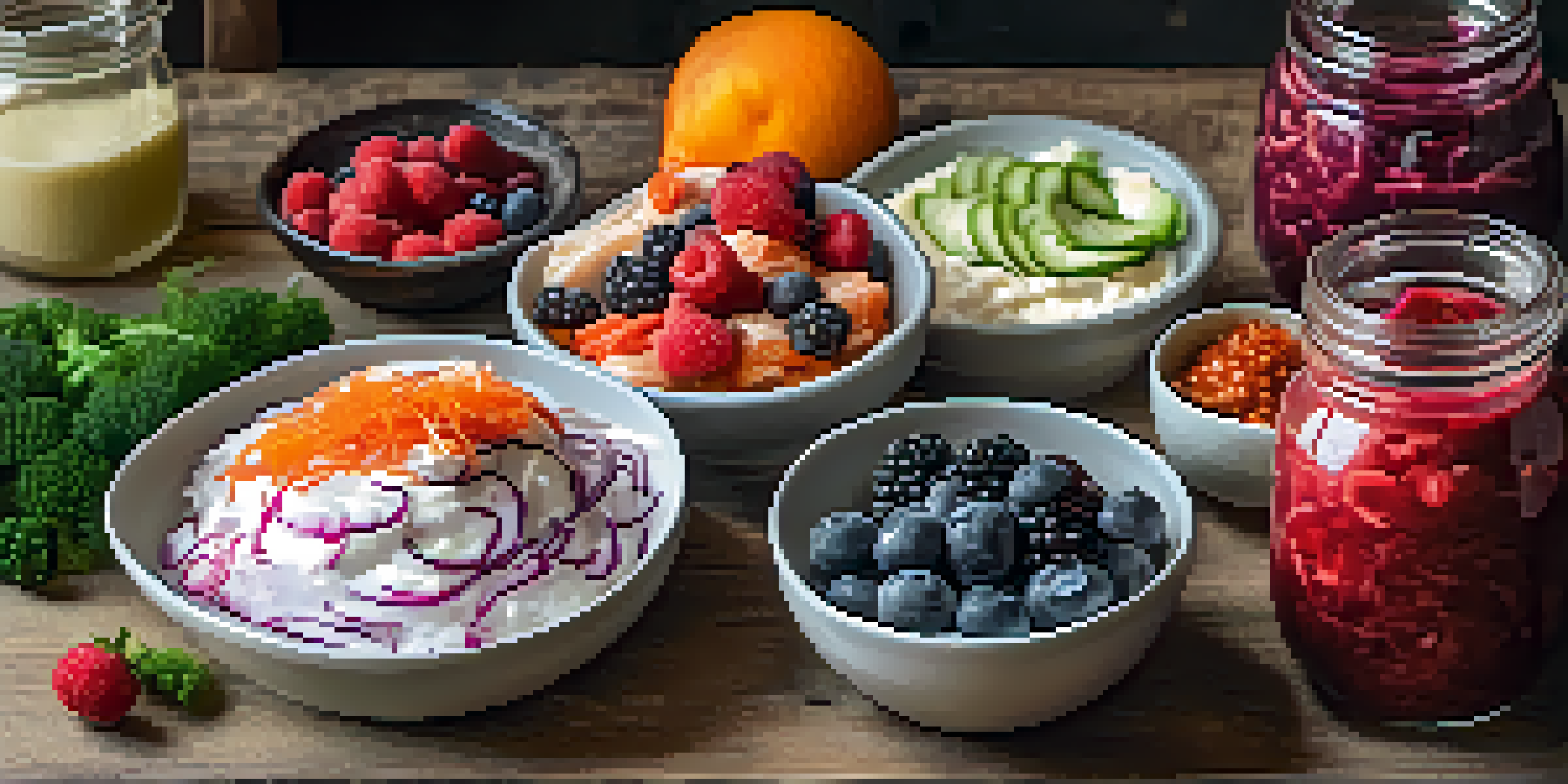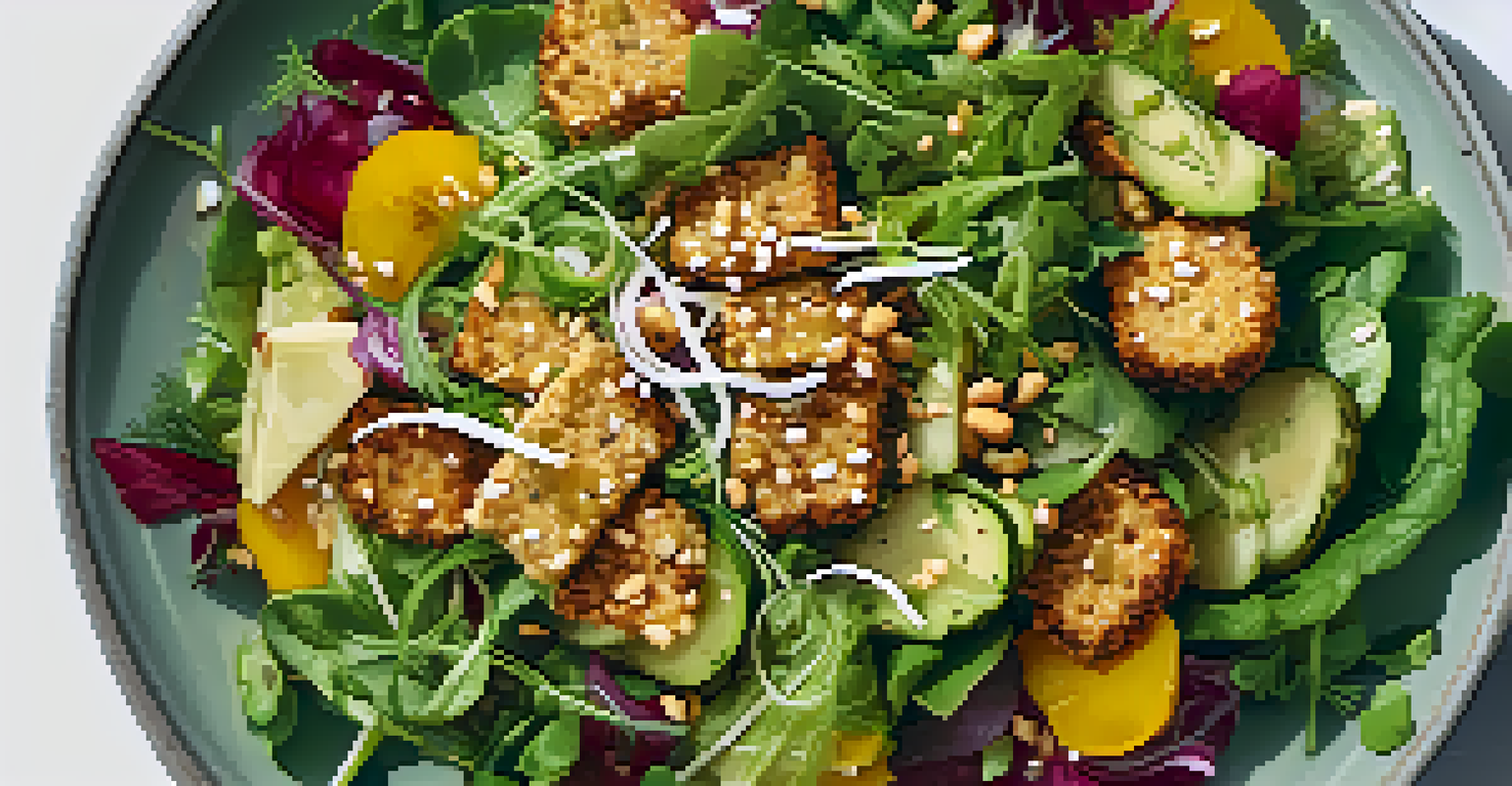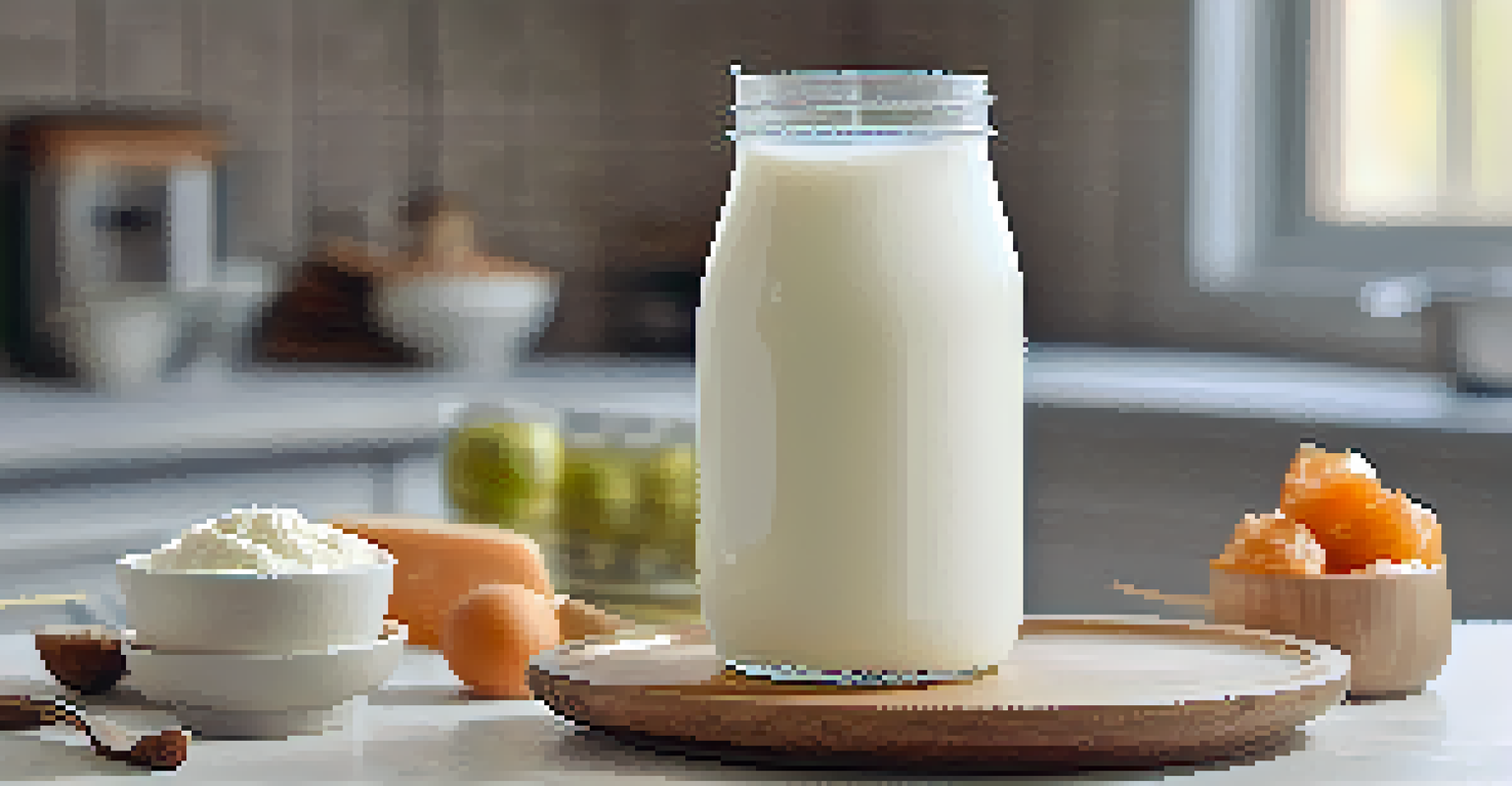Top 10 Fermented Vegetarian Foods for a Healthy Diet

What Are Fermented Foods and Why Are They Beneficial?
Fermented foods are those that have undergone a natural process of fermentation, where microorganisms like bacteria and yeast convert sugars and starches into acids or alcohol. This process not only preserves the food but also enhances its nutritional value. By eating fermented foods, you can boost your gut health, improve digestion, and even strengthen your immune system.
The food you eat can be either the safest and most powerful form of medicine or the slowest form of poison.
One of the standout benefits of fermented foods is their richness in probiotics, which are beneficial bacteria that promote a healthy digestive tract. A well-balanced gut flora can lead to improved digestion and better nutrient absorption. Think of your gut as a bustling city; probiotics help keep the traffic flowing smoothly!
Additionally, many fermented foods are packed with vitamins and minerals that are more readily absorbed by the body. For example, fermentation can increase the availability of nutrients like B vitamins and antioxidants, making these foods not just tasty but also a powerhouse for your health.
1. Yogurt: A Creamy Probiotic Powerhouse
Yogurt is perhaps one of the most popular fermented foods, celebrated for its creamy texture and delicious taste. Made from milk that has been fermented with live bacteria, yogurt is rich in probiotics, calcium, and protein. It can be enjoyed on its own or used as a base for smoothies and dressings.

When choosing yogurt, look for varieties labeled 'live and active cultures' to ensure you're getting those beneficial probiotics. Greek yogurt is a great option as it contains significantly more protein than regular yogurt, making it a satisfying choice to fuel your day.
Fermented Foods Boost Gut Health
Fermented foods, rich in probiotics, promote a healthy digestive system and enhance nutrient absorption.
You can also easily customize yogurt with fruits, nuts, or honey, turning it into a delightful and nutritious snack or breakfast. With its versatility and health benefits, yogurt is truly a staple in any fermented vegetarian diet.
2. Kimchi: A Spicy Korean Delight
Kimchi is a traditional Korean dish made from fermented vegetables, primarily napa cabbage and radishes, seasoned with spices. This zesty condiment is not only a staple in Korean cuisine but also a fantastic source of probiotics and vitamins A, B, and C. Its unique flavor can elevate any meal, adding a spicy kick that tantalizes the taste buds.
Let food be thy medicine and medicine be thy food.
Beyond its deliciousness, kimchi is known for its health benefits, including promoting digestion and boosting the immune system. The fermentation process encourages the growth of beneficial bacteria, making it a powerhouse for gut health. Picture kimchi as your gut's personal trainer, helping it stay fit and active!
Kimchi can be enjoyed straight from the jar, or you can incorporate it into various dishes like fried rice, tacos, or even salads. Its versatility makes it an exciting option for those looking to spice up their meals while reaping health benefits.
3. Sauerkraut: A Tangy Fermented Cabbage
Sauerkraut, which means 'sour cabbage' in German, is made by fermenting finely shredded cabbage with salt. This crunchy delight is not only low in calories but also high in fiber and packed with probiotics, making it a great addition to your diet. The tangy flavor of sauerkraut can add a refreshing crunch to sandwiches and salads.
One of the key benefits of sauerkraut is its ability to support digestive health. The fermentation process creates beneficial bacteria that can help balance gut flora. Think of sauerkraut as nature's little helper, working tirelessly to keep your digestive system humming along.
Variety of Fermented Options Available
From yogurt to kimchi, there are numerous delicious fermented foods that cater to different tastes and dietary preferences.
Moreover, sauerkraut is rich in vitamins C and K, contributing to overall health. Whether you eat it as a side dish or as a topping for your favorite meals, this fermented food brings both flavor and nutrition to the table.
4. Kefir: A Fermented Milk Drink for All Ages
Kefir is a fermented milk drink similar to yogurt but with a thinner consistency and a tangier taste. It is made using kefir grains, which are a combination of bacteria and yeast. This probiotic-rich beverage is easy to digest and can be enjoyed by both kids and adults alike, making it a family-friendly option.
Rich in probiotics, vitamins, and minerals, kefir offers numerous health benefits, including improved digestion and enhanced immunity. It's like a nutritious smoothie with a probiotic punch! You can enjoy kefir on its own, blend it into smoothies, or even use it as a base for salad dressings.
With its creamy texture and versatile use, kefir is an excellent way to incorporate fermented foods into your diet. Plus, it's a delicious alternative to sugary drinks, keeping your health in check while satisfying your taste buds.
5. Tempeh: A Protein-Packed Meat Alternative
Tempeh is a fermented soybean product that originated in Indonesia. It has a firm texture and a nutty flavor, making it an excellent meat substitute for vegetarians and vegans. Not only is tempeh high in protein, but it also contains probiotics, making it a nutrient-dense addition to your meals.
One of the remarkable aspects of tempeh is its versatility; it can be marinated, grilled, sautéed, or crumbled into various dishes. This means you can use tempeh in everything from stir-fries to tacos, easily adapting it to your favorite recipes. Think of tempeh as a blank canvas, ready to absorb the flavors you love!
Nutritional Powerhouses for Health
Many fermented foods are packed with essential vitamins and minerals, making them a nutritious addition to any diet.
Moreover, tempeh is rich in fiber, vitamins, and minerals, supporting overall health. By incorporating tempeh into your diet, you're not just enjoying a delicious meal, but you're also fueling your body with essential nutrients.
6. Miso: A Savory Fermented Paste
Miso is a traditional Japanese seasoning made from fermented soybeans, salt, and a type of fungus called koji. It comes in various types, including white, yellow, and red, each offering distinct flavors and health benefits. Miso is often used in soups, marinades, and dressings, adding a rich umami taste to your dishes.
This fermented paste is a great source of probiotics and essential nutrients, including protein, vitamins, and minerals. Miso can be thought of as a flavor enhancer that not only makes your food taste better but also supports your digestive health. It's like a secret ingredient that boosts both flavor and nutrition!

When using miso, just remember that it’s high in sodium, so a little goes a long way. By incorporating miso into your cooking, you're not only enriching your meals but also tapping into the health benefits of fermented foods.
7. Pickles: Crunchy Fermented Snacks
Pickles, particularly those made through natural fermentation (like dill pickles), are another tasty way to enjoy the benefits of fermented foods. These cucumbers are soaked in a brine solution, allowing beneficial bacteria to thrive and create that iconic sour flavor. They're low in calories and can serve as a crunchy, satisfying snack.
The probiotics found in pickles can aid in digestion and contribute to gut health, making them a delightful addition to your diet. Think of pickles as a healthful snack that also satisfies your craving for something crunchy and tangy!
Pickles can be eaten on their own or added to sandwiches, salads, and burgers for an extra zesty kick. With their refreshing taste and health benefits, pickles are a fun way to incorporate fermented foods into your daily eating habits.
8. Natto: A Unique Japanese Fermented Soybean Dish
Natto is a traditional Japanese dish made from fermented soybeans, known for its distinctive texture and strong flavor. While it may not be for everyone, natto is packed with nutrients, including protein, vitamins, and probiotics. Its unique sticky texture can be an acquired taste, but many find it delicious when paired with rice or as a topping for sushi.
One of the standout benefits of natto is its high content of vitamin K2, which plays a vital role in bone health and cardiovascular function. This makes natto a powerhouse for those looking to enhance their nutrient intake. Imagine natto as a hidden gem in the world of fermented foods, waiting to be discovered!
Incorporating natto into your diet can introduce you to new flavors and textures, making your meals more diverse and interesting. So if you're feeling adventurous, give natto a try, and you might just find a new favorite!